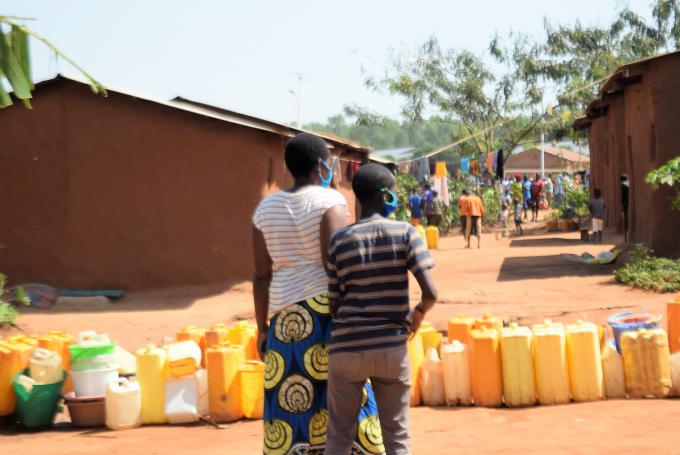Kami's journey to healing and growth
 After fleeing conflict in Burundi, Kami*,14, and her family relocated to Mahama Refugee Camp in 2015. Kami lives with her mother, father and two siblings. When Kami was 1 year old, she contracted meningitis resulting in cerebral palsy. Cerebral palsy is sometimes linked with cognitive impairment which includes decision-making and behavioral issues. To add to these health conditions, at the age of 14 years, Kami suffered another major blow in her life where she ran away from home and was later sexually defiled.
After fleeing conflict in Burundi, Kami*,14, and her family relocated to Mahama Refugee Camp in 2015. Kami lives with her mother, father and two siblings. When Kami was 1 year old, she contracted meningitis resulting in cerebral palsy. Cerebral palsy is sometimes linked with cognitive impairment which includes decision-making and behavioral issues. To add to these health conditions, at the age of 14 years, Kami suffered another major blow in her life where she ran away from home and was later sexually defiled.
Fortunately,through the support of Save the Children’s Child Protection Case Workers, Kami was admitted to the Sexual and Gender-Based Violence (SGBV) department to receive follow-up care.
In addition to these services, Kami also benefits from the Child Friendly Space (CFS) operated by Save the Children. Before the COVID-19 pandemic, Kami, who enjoys dolls, used to visit the CFS to play. However, now that the CFS has been closed in a bid to slow the spread of COVID-19, Kami misses the place she used to call home, school and haven.
In following with directives from the Government of Rwanda, the CFS and schools will remain closed until September 2020 to prevent the exposure of children to COVID-19. Kami has struggled without the CFS and inevitably runs away from home where she is defiled.
To safeguard Kami’s wellbeing, Save the Children looked for a solution that would provide Kami’s parents with means to stay at home and care for their daughter while also earning money. With this aim, Save the Children provided Kami’s mother, Lydia, with a sewing machine during the COVID-19 pandemic so that she can generate income without leaving her home and her child. Lydia is now learning how to use the sewing machine and trusts that this intervention will help her earn money and look after her child.
“I want to be a nurse when I grow up so that I will give deworming medicine to children. I plead for a special school for learning. Save the Children has given me clothing, soap, and shoes. I miss school. The last time we were there we learnt in English a, i, u, o, e and we learnt one, two three, four, five, six, seven, eight nine, ten.” Says Kami about when asked about her dreams and what she misses about school.
“In Burundi, she [Kami] used to stay at a special needs school but there is no special needs school here in the camp. I have to personally keep an eye on her. My husband helps me to monitor her movement. It would be great if Save the Children had a special needs school,” said Lydia mother of Kami who cried while recalling her daughter's struggles.
“Before receiving the sewing machine from Save the Children, it was very hard because I had to go to work and do chores for others so that I can earn some additional money to support our living conditions. But as I find this machine, I believe that it will help me earn some money and try my best to be together and look after Kami more closely.
Also, Kami was happy when we received the machine. She was as excited and told children, ‘We have got a sewing machine. We will make your clothes freely.’”
Kami now learns easily and can remember lessons from school like counting in Kinyarwanda and English as well as the alphabet. Kami would benefit from a special needs school , with her goals of becoming a nurse in the future, Kami would require formal education which is not beyond her reach.
Background
Save the Children has provided health, nutrition, and other services including case management for child protection and SGBV to Burundian refugees since 2015.
Save the Children has been at the forefront of emergency response interventions to ensure that children in Mahama Refugee Camp and reception centers for Burundian refugees survive, learn, and are protected. In May 2020, Save the Children reached 60,301 Burundian refugees including 31,960 children.
*Names changed to protect identity
 Rwanda
Rwanda